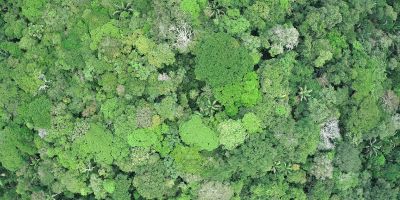Global importance of pollinators underestimated

Declines in populations of pollinators such as bees and wasps may be a key threat to nutrition in some of the most poorly fed parts of the globe, according to new research.
A major study, published today in the Proceedings of the Royal Society B and co-authored by a University of Leeds academic, looked at the importance of pollinators to 115 of the most common food crops worldwide and the importance of those crops in delivering vital nutrients to vulnerable populations.
The research, the first to study the relationship between nutrition and pollination across the globe, found some regions where disruptions in pollination could have serious implications for human health.
Deficiencies in ‘micronutrients’—nutrients such as iron and vitamins that are required by the body in small quantities—are three times as prevalent where production of micronutrients is heavily dependent upon pollinators, such as Sub-Saharan Africa, India, and the Middle East.
Populations of pollinators are declining across the globe. Whether this is because of intensive land use, pests, disease or climate change, it is time to devote more resources to the study and protection of these insects
In Southeast Asia and parts of Latin America, almost 50% of plant-derived vitamin A production relies on pollination.
Dr Guy Ziv, co-author of the study and lecturer on ecosystem services in the School of Geography at the University of Leeds, said: “Populations of pollinators are declining across the globe. Whether this is because of intensive land use, pests, disease or climate change, it is time to devote more resources to the study and protection of these insects. Our study highlights the need of more globally coordinated effort, especially in developing countries where capacity is limited.”
Dr Becky Chaplin-Kramer, research associate at the Stanford Woods Institute for the Environment and the lead author of the study, said: "A disruption in pollination services certainly has a price-tag, estimates go as high as $390 billion annually, but the cost to our nutrition could be even greater."
“This means pollinator declines could hit hardest on the very people who can afford to lose the least in terms of nutrition,” she said.
The study was coordinated by the Natural Capital Project, a partnership between Stanford’s Woods Institute for the Environment, the University of Minnesota’s Institute on the Environment, The Nature Conservancy and the World Wildlife Fund.
With growing concerns over how to feed the world with a population fast approaching 9 billion, we need to ensure people are not only getting enough food, but the nutrients necessary to live healthy and productive lives.
The researchers collaborated to gather global datasets of crop yield for 115 of the most common food crops, along with data on pollination dependence and micronutrient content of each of those crops, and then combine that information with estimates from the World Health Organization of micronutrient malnutrition.
The team focused on vitamin A and iron, two of the three nutrients of greatest concern to public health in the developing world, as well as folate, which is important in preventing birth defects. The spatial data allowed the research team to identify regions where nutritional deficiencies overlap with pollinator-dependence.
“We need to set a new research agenda for pollination and nutrition,” adds Dr Jamie Gerber, one of the study’s co-authors and co-director of the Global Landscapes Initiative at the University of Minnesota’s Institute on the Environment. “With growing concerns over how to feed the world with a population fast approaching 9 billion, we need to ensure people are not only getting enough food, but the nutrients necessary to live healthy and productive lives.”
Further information
Dr Guy Ziv is available for interview. Please contact Sarah Reed, Press Officer at the University of Leeds, on 0113 34 34196 or email s.j.reed(at)leeds.ac.uk
Photos are available at: http://bit.ly/1qO6RcU
The full paper: Chaplin-Kramer R, Dombeck E, Gerber J, Knuth KA, Mueller ND, Mueller M, Ziv G, Klein A-M. 2014 Global malnutrition overlaps with pollinator-dependent micro-nutrient production. Proc.R. Soc. B 281: 20141799 is published in the Proceedings of the Royal Society B at http://rspb.royalsocietypublishing.org/content/281/1794/20141799




